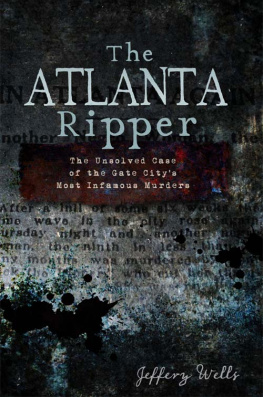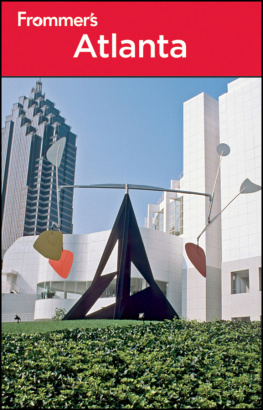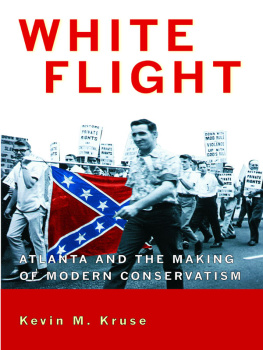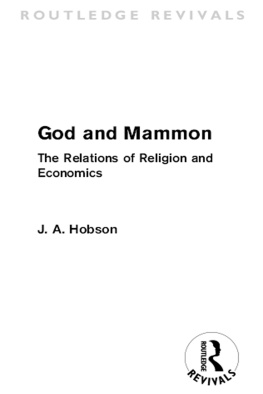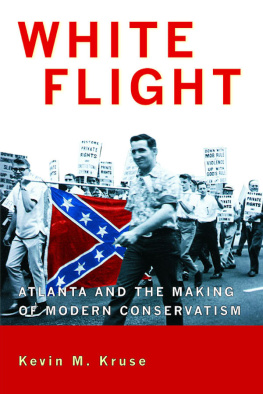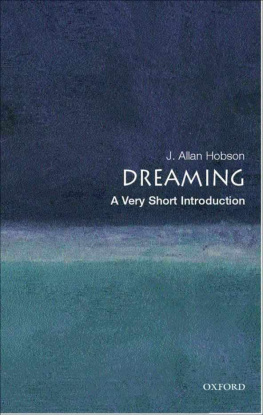2017 Maurice J. Hobson
All rights reserved
Set in Charis by Westchester Publishing Services
Manufactured in the United States of America
The University of North Carolina Press has been a member of the Green Press Initiative since 2003.
Library of Congress Cataloging-in-Publication Data
Names: Hobson, Maurice J., author.
Title: The legend of the black mecca: politics and class in the making of modern Atlanta / Maurice J. Hobson.
Description: Chapel Hill: University of North Carolina Press, [2017] |
Includes bibliographical references and index.
Identifiers: LCCN 2017002265| ISBN 9781469635354 (cloth: alk. paper) | ISBN 9781469635361 (ebook)
Subjects: LCSH : African AmericansGeorgiaAtlantaHistory. | African AmericansGeorgiaAtlantaSocial conditions. | African AmericansGeorgiaAtlantaEconomic conditions. | Atlanta (Ga.)History20th century. | Atlanta (Ga.)History21st century.
Classification: LCC E185.615 .H53 2017 | DDC 305.896/0730758231dc23
LC record available at https://lccn.loc.gov/2017002265
Jacket illustrations: Left, mothers of missing and murdered children march in remembrance, 1984 ( AJCP 165-014d, Atlanta Journal-Constitution Photographic Archives, Special Collections and Archives, Georgia State University Library); right, Mayor Maynard Jackson oversees unveiling of Martin Luther King Jr. Drive street sign, 3 June 1976 ( AJCP 293-005l, Atlanta Journal-Constitution Photographic Archives, Special Collections and Archives, Georgia State University Library).
Acknowledgments
This project is the result of a series of Kairos moments. A patient reading of this book may impart the particular sensation of being black and southern at the dawn of the twenty-first century. In the spring of 1994, I, a high school black boy from Selma, Alabama, was intrigued and inspired by the hip-hop duo OutKast, who deemed themselves two dope boys in a Cadillac. These young men hailed from Atlanta, Georgia, and spewed an analysis of Atlanta that helped me understand the arrival of a new black southern voice. They rejected negative depictions of black southerners as hayseeds and slow on the uptake. In the fall of 1995, their label mates, Goodie Mob, also from Atlanta, pushed for the Dirty South movement, detailing the grit and grime of the black masses in the black Mecca. The summer of 1996 ushered in the Centennial Olympic Games, where I worked for Coca-Cola to pay for my initiation into Omega Psi Phi Fraternity later that year. The confluence of these events forever changed my life and is at the core of my development as a scholar.
The early stages of this project gained traction under the guidance of Amilcar Shabazz. Shabazz embraced my passion for the Dirty South, and provided the tools for a critical analysis of the movement by encouraging me to work on my thoughts in an environment that was at times hostile toward African American history and culture. Shabazz kept me motivated, even when one of my international (European) classmates openly rebuked the project, blurting out that she could not take it seriously and suggesting that the project lacked merit. I am grateful to Shabazz, who helped me persevere and pushed me to go on to pursue a doctorate. His suggestion that I move forward to more thorough doctoral training that grounded me in the use of analytical, conceptual, and research tools of African American history led me to James Anderson.
During my first year of graduate study at the University of Illinois at Urbana-Champaigns History Department, I enrolled in a graduate course titled Black Politics, Art and Culture, taught by Fanon Wilkins. Here this project grew immensely and connected politics with expressive culture. Those who know Fanon Wilkins know that his brilliance is eclectic. In this course I married my interests in the Dirty South, historically black colleges/universities, and my fondness for the Centennial Olympics. Wilkins pulled me to the side and suggested that I consider scholarship that explored the geopolitical, social, and cultural history of Atlanta through the music of the Dungeon Family. That course planted the seeds for this project.
In the fall of 2005, the tempest formally known as Hurricane Katrina ravaged my ancestral homeland of the Gulf Coast. At this time, I had enrolled in a graduate course taught by Adrian Burgos and David Roediger titled Race and the City, which examined the trends and tensions of urban development in a postwar context. The aftermath of Hurricane Katrina and the lack of aid for poor black communities warranted a much-needed analysis of the American South and urbanization. When I approached Professors Burgos and Roediger about writing on the American South and urbanization, they responded in jest, The South doesnt really have cities. In this vein Burgos and Roediger encouraged me to initiate, develop, and articulate the concept of the black New South. The learning and intellectual prodding I received in that course have proved invaluable to this venture.
The project would not have been possible without stops along the road. I am grateful for the guidance of Clarence Lang, Christopher Span, and Leon Dash. I am grateful for the spot-on support and friendship of Charles K. Ross, Ted Ownby, and Charles Reagan Wilson, my colleagues during my tenure at the University of Mississippi who read earlier drafts of the manuscript. A special thanks to my colleagues and staff in the Department of African-American Studies at Georgia State University. I am especially indebted to Akinyele O. Umoja, who has been more to me than the chair of African-American Studies. He has been a confidant and spiritual leader whose camaraderie and friendship are unmatched. I am also grateful to Cora Presley, Jonathan Gayles, Michael Simanga, Jacqueline Rouse, Lakeyta Bonnette, and Glenn Eskew of Georgia State University for their support and belief in the project. A special thanks to Belinda Futrell and Tiffany Bullock of Georgia State Universitys Department of African-American Studies.
I cannot say enough about my editor and friend, Brandon Proia, of the University of North Carolina Press. Brandon has offered insight and wisdom on this project and brought it to fruition. He has answered every call and e-mail and serves as the most valuable player. I am deeply indebted to my friend David Perry, formerly of the University of North Carolina Press. A special thanks to my production editor, JodieAnne Sclafani, for a critical eye and professionalism. I am grateful for you. A special thanks to Pamela Gray for indexing this manuscript with great detail.
Special thanks to Dwight Watson, Derrick Alridge, Derrick White, Tomiko Brown-Nagan, Maurice Daniels, Larry Rowley, Monique Bedasse, and Shirletta Kinchen for reading the manuscript and making recommendations and suggestions. My thoughts on this work are much like Erykah Badus declaration in Tyrone (Live) where she states, Now keep in mind Im an artist, and Im sensitive about my All of you have been thoughtful and encouraging about this work. I am so grateful to you.



